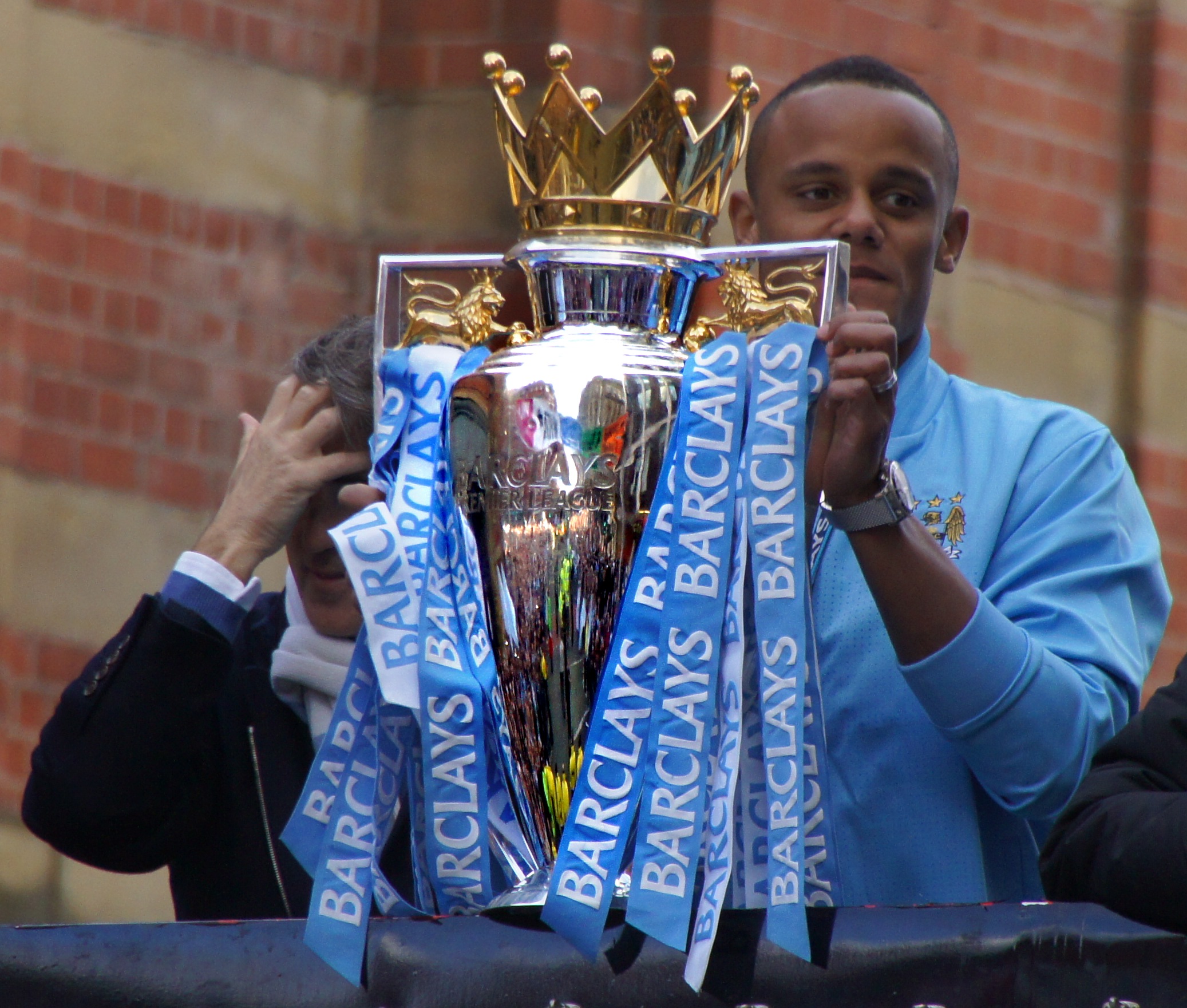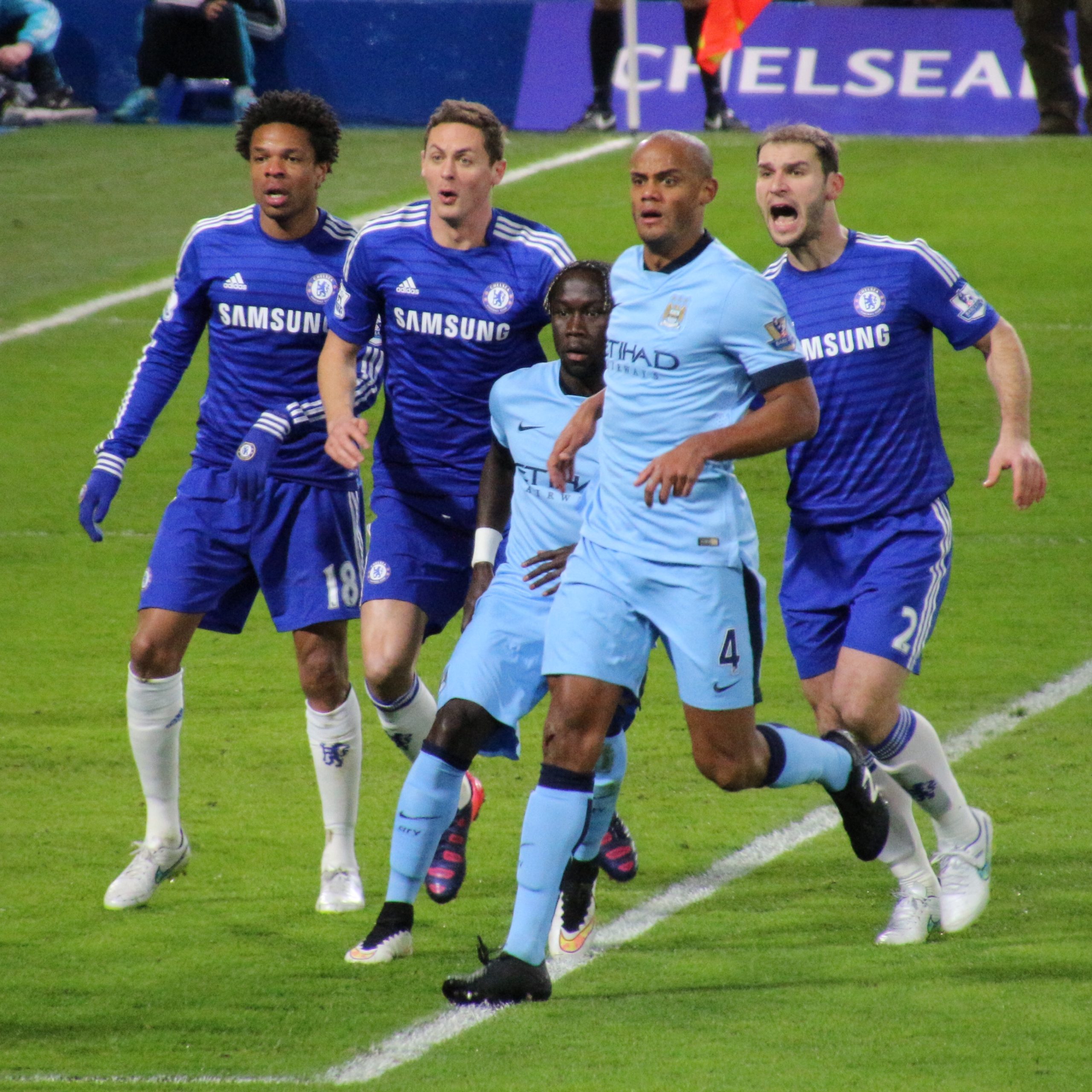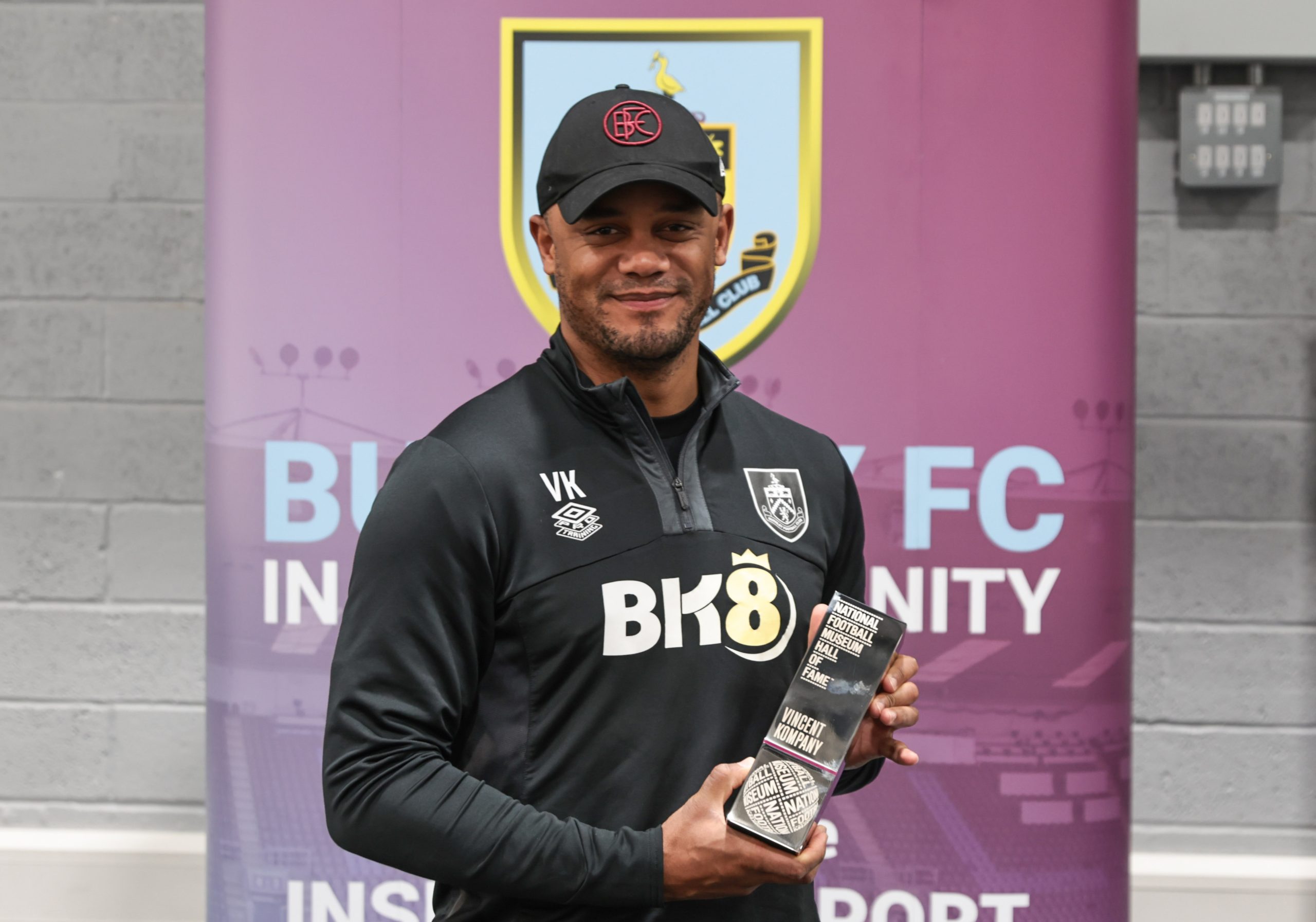
Described as “one of the biggest legends” by former manager Pep Guardiola, Vincent Kompany was a titan of the Premier League era, forming the bedrock of Manchester City’s successful defence throughout their rise to the top.
Born to a Congolese father and Belgian mother in Brussels, Vincent was drawn to football from an early age. Racism and discrimination from opposition players outside of the capital city would not deter him from the dream of becoming a professional footballer.
As a young teenager, Kompany joined the academy at his hometown team, Anderlecht; within three years, he had broken into the first team. The 17-year-old belied his youth at the heart of Hugo Broos’ title-winning side, becoming the third-youngest winner in the history of the Belgian Golden Shoe – doing so in his debut season.
Despite attracting interest from across Europe, Kompany opted to continue his development at Lotto-Park. After three seasons in Belgium, he was snapped up by Hamburg as a replacement for fellow countryman Daniel Van Buyten. Limited to just six appearances by injury, the Belgian prodigy would bounce back the following year. Prior to that injury, Kompany had previously caught the eye of Blackburn Rovers manager Mark Hughes during pre-season: the Welshman resolved to build a team around him when he took the reins at Manchester City.
Kompany put pen to paper on a four-year deal, just ten days before Sheikh Mansour’s takeover in September 2008. On signing, Hughes described the Belgian as “one of the outstanding talents in Europe”, citing his technique and ”flexibility to play exceptionally well in a number of positions”. Indeed, Kompany started his City career in defensive midfield, but excelled when moved back into defence: a transition cemented by Hughes’ successor, Roberto Mancini.
Surrounded by an influx of worldly and expensive talent, Kompany nonetheless lived up to his billing as one of the continent’s rising stars, featuring in all but one Premier League game in 2010-11 as City qualified for Champion’s League football for the very first time. Within weeks, the vice-captain was lifting his first trophy with the club, keeping a clean sheet in the 2011 FA Cup Final win over Stoke City.

For Vincent, the FA Cup was just the start. The following season, he was handed the captain’s armband on a permanent basis, and became the first to lead City to a top-tier title since Tony Book in 1968 (coincidentally, both lifted the championship trophy in their first season as skipper). Though his contribution was most keenly felt towards his own box, Kompany did make a decisive impact at the other end: a towering header to see off Manchester United in the derby, two games before that breathtaking final day at home to QPR.
For his exceptional performances at the back, Kompany also became the first City player to win the league’s Player of the Season award: the second centre-half to do so after Nemanja Vidic.
Kompany added another Premier League medal and a first League Cup to his cabinet in 2014, but a muscular injury sustained the following season would limit his game time, both that year and in the years to come. He was fit enough to captain City to further League Cup glory against Liverpool in 2016, but recurring strains would force the talisman onto the sidelines for large parts of his career.
“He was a leader in the dressing room and an inspiration on the field. For a decade he was the soul of the football club.”
Pep Guardiola
When fit, however, the centre-half would return to the starting line-up and make telling contributions to City’s continued success. He turned home Ilkay Gundogan’s shot to double their lead in the 2018 League Cup final, ultimately lifting the trophy for a third time.
Arguably the twilight of his Manchester City career produced its most significant highlight. Ahead of the penultimate game of the season, Manchester City trailed Liverpool by two points, and were struggling to break down Leicester City at the Etihad. With twenty minutes to go, Kompany carried the ball into Foxes territory. With space opening up in front of him, the centre-half tried his luck, unleashing a ferocious thirty-yard shot that flew past Kasper Schmeichel into the top corner. City would ultimately win the Premier League – Kompany’s fourth in seven years – by just one point.
Having lifted the League Cup earlier in the year, the captain completed the unprecedented domestic treble in the FA Cup final, comfortably keeping a clean sheet in the 6-0 demolition of Watford. It proved to be the twelfth and final piece of silverware in a glittering career in Manchester: the perfect swansong for a modern club legend.
“The best word to describe him is inspirational. On and off the field, he’s a true leader. He is a genuine legend and he’s one of the best centre-backs to grace the Premier League.”
Micah Richards
Kompany left the Etihad after eleven years and 360 games of exemplary service, taking up a player-manager role at his first club, Anderlecht, before hanging up his boots for good. He has recently shown his aptitude off the pitch at Burnley, returning the Clarets to the Premier League as champions in his first season in charge.

Vincent Kompany is considered to be one of the greatest centre-halves of the Premier League era, seamlessly combining physicality and technical ability. His reading of the game and timing of the challenge was matched by his comfort and ease in possession. Despite his later struggles with injuries, the impact of the Belgian on a number of City sides, from the first title winners under Mancini to Guardiola’s serial winners, cannot be understated.
When he left, Kevin De Bruyne referenced his big personality. Phil Foden thanked the “skip” for his mentorship. Yaya Toure referred to him as his “brother”. Pep himself summed it up best when describing Vinny as “a special human being”: a player who not only gave it all on the pitch, but a man whose personality bound everyone together in pursuit of glory.
Captain. Leader. Legend.
Principal English club: Manchester City
Caps: 89 (four goals)
Major Honours: 4 Premier League titles, 2 FA Cups, 2 League Cups
Inducted: 2023




























































































































